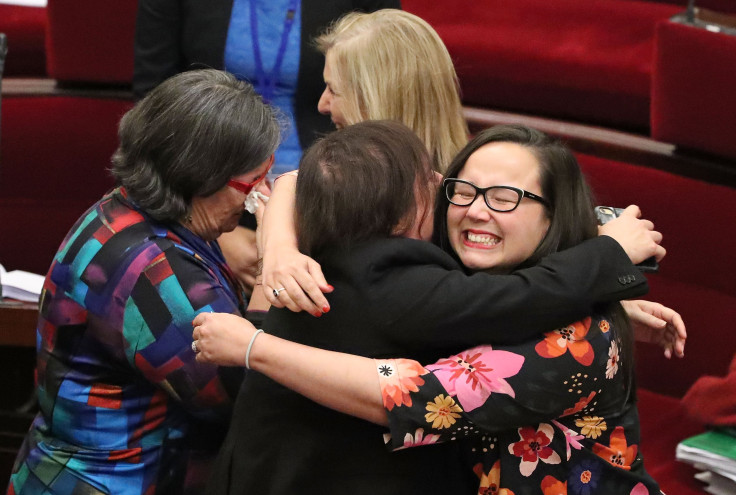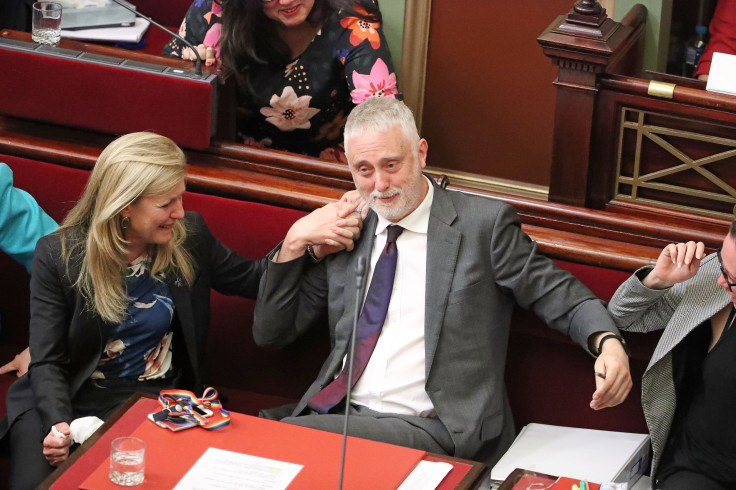Australian State To Legalize Voluntary Assisted Suicide: Euthanasia Laws Around The World

Victoria is on the path to becoming the first Australian state to legalize assisted dying after the upper house Wednesday passed a bill aimed at helping the severely ill request assistance to end their lives.
The landmark bill was approved 22 votes to 18 by MPs in the upper house after a grueling debate that lasted for over 28 hours. The final vote was cast at 4:10 p.m. Wednesday local time (12:10 a.m. EST Wednesday)
Next, the bill is scheduled to be forwarded to the lower house for approval, as the “final step.”
Supporters of the bill do not expect any complications in the lower house since members of the house already voted on the bill last month, passing it with a 47-37 vote, the Guardian reported.
If and when cleared by the lower house, this bill comes to effect on June 19, 2019, after which terminally ill Victorians with less than six months to live can request a prescription for lethal drugs to end their life.
The assisted dying bill was last visited in 1977, when Northern Territory briefly introduced the Terminally Ill Act, but which was overturned by the federal parliament.
Gavin Jennings, the special minister of state, one of the people who led the debate in favor of the bill in the chamber, initially accused the opposing member of deliberately filibustering by asking the same questions over and over again even though clarifications had been provided on more than one occasion.
A frustrated Jennings asked them whether they had “run out of arguments,” and “they just keep regurgitating either extracts from articles or try to delay the passage of the legislation.”
However, when it became more than clear that the bill was about to pass, Jennings, along with many of the supporters of the bill broke down in tears. Jennings said that his generation remembered Nov. 22 as the day former President John F. Kennedy was assassinated. “From this generation onwards, people will remember this day for a different reason,” he said.

For people who might be unaware, assisted dying or physician-assisted suicide is different from euthanasia. According to The World Federation of Right to Die Societies, “Physician-assisted suicide refers to the physician providing the means for death, most often with a prescription. The patient, not the physician, will ultimately administer the lethal medication. Euthanasia generally means that the physician would act directly, for instance by giving a lethal injection, to end the patient's life.”
Laws on euthanasia and assisted dying vary a deal in countries all over the world. In the United States, for example, only five states allow physician-assisted suicide, while euthanasia remains banned throughout the country. Oregon was the first U.S. state to legalize the law in 1997, while California became the fifth state to legalize assisted dying in 2015. Apart from these states, Washington, Vermont and Montana also allow assisted suicide for terminally ill patients, the Guardian reported.
In Belgium, on the other hand, both euthanasia and assisted dying is deemed legal. In 2002, the nation became the second country to legalize euthanasia, the first being The Netherlands. In February 2014, it also became the first nation to legalize euthanasia for children.
In both Germany and Switzerland, the term “euthanasia” is avoided all together. The legal terms used instead are "assisted suicide" ("beihilfe zum suizid") and "active assisted suicide" ("aktive sterbehilfe"). In both these countries, active assisted suicide is illegal, which means that doctors cannot prescribe or assist patients in taking lethal drugs. Assisted suicide, under certain terms and conditions, however, is allowed.
Countries such as China, Denmark, France, India, Israel, Italy, New Zealand, Philippines, Russia, Spain, the United Kingdom, Turkey are among those nations where both euthanasia and assisted dying is illegal, Procon reported.
© Copyright IBTimes 2025. All rights reserved.






















